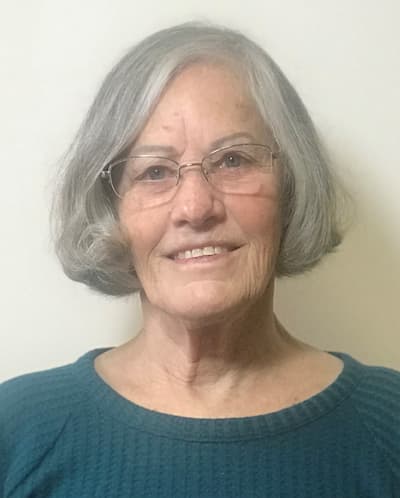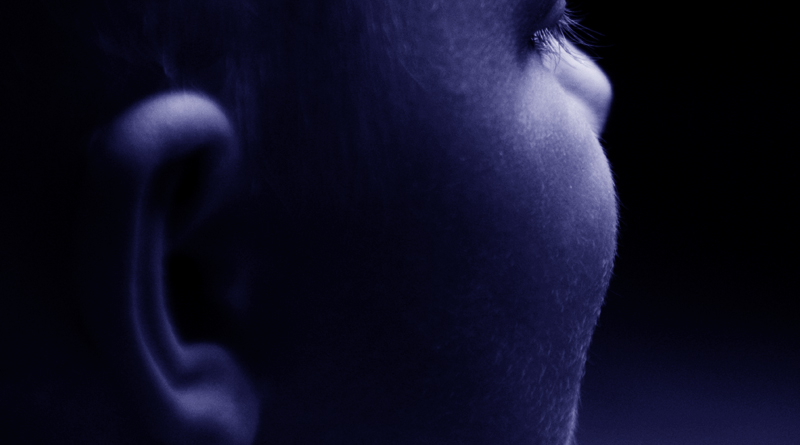
What I Learned from Interviewing 24 Men with Inattentive ADHD
By Cynthia Hammer, MSW
Males & Inattentive ADHD
Inattentive ADHD in boys and men is rarely mentioned, but it does exist. When it goes undiagnosed and untreated, it causes great emotional, social, and often physical harm. The earlier a child’s inattentive ADHD is recognized, the less difficult the child’s life will be. Only six of the 24 men were diagnosed before age 18, (three at age 7, one at age 10, and two at age 16).
The age of diagnosis for the remaining eighteen is three men between 18-30, seven men between 30-40, four men between 41-50, three men between 51-60, and one man diagnosed when over 65.
There is a backlog of men and women with undiagnosed inattentive ADHD because it was not recognized during their childhood. I also hope reading about the experiences of men with inattentive ADHD will help adults to identify this disorder in themselves. Here are the nine symptoms of Inattentive ADHD as listed in the DSM-V, the manual of psychiatric diagnoses. An adult to be diagnosed with IA would need to have at least 4 symptoms to a degree and frequency that they significantly impact the adult’s life.
1. Makes careless mistakes/lacks attention to detail
2. Difficulty sustaining attention
3. Does not seem to listen when spoken to directly
4. Fails to follow through on tasks and instructions
5. Exhibits poor organization
6. Avoids/dislikes tasks requiring sustained mental effort
7. Loses things necessary for tasks/activities
8. Easily distracted (including unrelated thoughts)
9. Is forgetful in daily activities
Most of the men I interviewed were physicians, psychologists, and coaches who currently work with ADHD clients. A few worked in IT and the rest have an assortment of jobs. The sample is skewed toward professionals because I solicited most of my interviewees through LinkedIn. The sample is also skewed to those fairly satisfied with their lives, as I believe, otherwise, they would be reluctant to be interviewed. Many interviewees reported continuing problems with anxiety, depression, and low self-esteem. I only interviewed three men who were down on themselves and hated, with a passion, having ADHD.
I wrote summaries of each interview immediately afterward. What follows stood out to me from my summaries. Each line represents a different interviewee and my interpretation of what he said.
The men recalled deprecating comments from parents and teachers.
I attended a Catholic school. The nuns made demeaning comments and hit me on the hand with a ruler.
I was told, “You’re so smart. You need to try harder.”
Comments were made about me being arrogant, spoiled, lazy, and not needing to study. I felt I had a character flaw.
I was often kicked out of class for talking
My mother frequently said to me, “The greatest burden is a big potential.”
A high school principal told me I would always be a failure, and a college instructor told me I should quit.
My life contained lots of minor traumas that reduced my self-worth and self-esteem. Although I was a good soccer player, my coach insulted me in front of my teammates. He asked me if I was retarded because I didn’t move to the ball fast enough. In college, my soccer coach berated me for not learning the drills quickly enough. He used me as an example of what not to be like. I still feel hurt and shame from these comments 10 years later.
Some recognized they were different, even at a young age, without understanding why.
My teachers said, “You’re here, but not really here.”
As a young child, I announced at a family gathering, “Sometimes I drift off the planet.” My comment became part of the family history and was repeated many times.
I was aware of being inattentive, but I thought it was because of boredom.
I thought my difference was just my personality.
I knew all my life I was different and always felt like an outsider.
I had difficulties socially and scholastically but wrongly attributed them to having a single parent, living in poverty.
I knew I was different but thought it was because I was gay.
I knew I was bright and couldn’t understand why I didn’t perform better.
I was a B student through most of my schooling and wasn’t aware of being different. In med school, I got all A’s. Years later, after my diagnosis, my therapist explained excellent grades in med school as hyper-focusing on something I loved.
I still live with imposter syndrome. It is hard to accept my success because it is a new experience for me. I am more comfortable being a failure as that is how I felt most of my life.
What led to their diagnosis?
A parent or teacher realized I was bright although I wasn’t doing well in school.
My diagnosis was delayed because I was smart and got good grades.
My mother said I couldn’t have ADHD because I wasn’t getting bad grades.
I was diagnosed as a child but didn’t take meds. I sought a diagnosis again in college when I needed more structure and couldn’t create it.
My parents had me see a psychiatrist when I was 16 for depression and anxiety. He treated those conditions for three years before he prescribed medications for ADHD.
The first time I heard about ADHD was when my boss described his diagnosed son. I went to see a psychiatrist and told him I thought I had ADD. The psychiatrist responded, (and these are his actual words), “ ADD is a myth created by the media. You need to do crossword puzzles to help you focus.”
I trained as a coach and struggled for months to create a website for my coaching business. I challenged myself to ask the questions I would ask a coaching client if he had a similar problem. This led me to the 6-question screener for ADHD. I answered 5 out of 6 positive. I got diagnosed and treated with medication and created my website in two weeks.
I saw three different therapists for several months at a time. I continue to wonder why they never brought up my fidgeting and inattentiveness.
If I was diagnosed early in life, it would have made a difference as long as I was told, “You have a different brain.” It wouldn’t have made a difference if I was told, “You have a brain that needs to be fixed.”
A diagnosis would have been helpful if it made me more self-aware.
If I was diagnosed as a child, I believe, my mother, who was a therapist, wouldn’t allow me to take medication so a diagnosis wouldn’t have helped me.
I saw a therapist for anxiety and depression for two years. On my own, I read Kate Kelly’s book about not being lazy, stupid or crazy and recognized myself. Then my therapist diagnosed me with Inattentive ADHD.
In 20 years, I had over 50 jobs so wanted a change. That spurred me to get a diagnosis.
I don’t believe knowing earlier would have made much difference as I was already doing well in life.
The Role of Medication
Medication made a huge difference for some of the men, a smaller difference for others, and a few never tried medication or hadn’t found one that worked for them. A few took medicine for depression and anxiety as well.
During a few periods in my life, I was without medicine for my ADHD, and it caused significant problems with my education.
I started taking Adderall when I was 6. It made a huge difference, like night and day. I no longer felt incapable. I was able to manage school as well as the other children.
After my diagnosis, I became calmer, less anxious, and less impulsive although still distractible.
Medication was a game-changer for me.
After my diagnosis and treatment, I had a lot more possibilities for my life.
In college, I again thought I might have ADHD. I went for four hours of testing which showed I might have ADHD as well as depression. I took Wellbutrin with no improvement, then went on Adderall and now take Concerta.
Once I started medication for my inattentive ADHD, my anxiety and panic attacks were gone, along with my Intermittent Explosive Disorder. For the first time, I realized my explosive rage only occurred when I built up too much anxiety during the day.
What coping methods and strategies did the men employ?
When I was younger, stress and anxiety helped me get things done. Now, I feel like I am masking much of the time and this makes me tense. I struggle to come to terms with my ADHD. I think it is not something to overcome but to workaround.
I work on changing my self-talk in the areas where I still criticize myself—being late and not planning. I constantly work to avoid my pitfalls and to keep improving.
I can’t get myself to do simple tasks but am excited by challenging ones.
I don’t let ADHD define me.
When I started to own my ADHD, I stopped taking medication.
Having ADHD is frustrating, but labeling it is helpful. i.e. That is my ADHD.”
I learned to forgive myself for ADHD-related issues.
My best happens when I engage all five senses while doing a task, e.g. highlight while reading, listen to music, move about, snack, and take notes.
It’s hard for me to be consistent. I try to stick with my routines.
Before my diagnosis I got people to help me. I used Cliff notes. I used my problem-solving brain to identify shortcuts. I got clues from the teachers on what to study.
When I discover a troublesome behavior, I figure out how to eliminate it. Then I work to make the new behavior a habit.
I have a horror of “incompletes” so that spurred me to get my assignments done on time. I had a strong commitment to do well. My first two years in med school were pass or fail. That saved me. After completing my residency, I wisely chose to work at a hospital more accepting of differences.
Therapy helped me to become authentic and overcome my imposter syndrome.
Before getting medication for my Inattentive ADHD, I self-medicated with coffee, cocaine (never getting high on it), and alcohol. I also ran, sometimes up to 15 miles at a time. I didn’t know about my ADHD, but I knew running made me function better.
I would binge on work to get it done by a deadline. I maintained a pocket-size calendar so I always have it with me. When I undressed at night, I put my trousers on a chair. In the morning I transferred the belt and items in the trouser pockets into the pair of trousers I wore that day. I created habits and routines.
After I was told by my psychiatrist that ADD wasn’t real, I spent four years studying personal development—mindfulness, the habits of highly successful people, etc. After I realized my brain was wired differently, I developed hacks for myself, setting clear intentions and focusing on doing a single thing at a time.
In addition to inattentive ADHD, I have depression, anxiety, dyscalculia, and processing disorder. I spend $1000 a month for my naturopath, two coaches, and a therapist.
A few interviewees mentioned unusual helps for their ADHD–martial arts, breathing exercises, testosterone shots, psychotherapy, weed, and cocaine.
There was a range of responses to living with ADHD
I hate having ADHD and I hate that others don’t understand the challenges I have.
I worked to own my ADHD, to learn how to navigate it, and stay in the areas of my strengths.
I hate having ADHD and would choose not to have it, but I am almost at the point where it no longer is an issue in my life.
I work long hours but certain tasks, like paperwork, still don’t get done. That discourages me. I tell people I will do something and then forget. This makes me ashamed.
I only get something done if I am accountable to another person, but I blame myself for needing outside accountability. I have the names of ADHD coaches but never pursued them. I continue to think I can conquer my inattentive ADHD on my own.
I taught myself techniques and I use a lot of technology. I get ideas on ADHD strategies from TikTok, like creating good habits, clearing my desk at night so I’m ready to go in the morning, exercising regularly, and eating well. I focus on my strengths and work to embrace myself, but it is a challenge. I look at others and what they achieve and feel envious.
I had a coach in the past but was disappointed in my progress. She’d suggest I try a new behavior, and when I failed to follow through, she didn’t offer another way to move forward. I want a coach to hold my feet to the fire.
I am afraid to attempt new behaviors. The fear of failure holds me back.
My parents, my wife, and my business partner assist me with organizing and completing tasks.
People with ADHD know what to do, but can’t get themselves to do it. Even after treatment, when they can get themselves to do something, they don’t know the best way to do it with their different brain wiring.
My life was minimally impacted by my undiagnosed ADHD. I was successful in life so that even after my diagnosis I never tried medication.
What would be different if you had been diagnosed as a child?
I would have better psychological health, without a damaged self-image.
I might have avoided the social anxiety and rejection sensitivity that have plagued me all my life.
If I knew about my ADHD when younger, I would have less anxiety about deadlines. I would have been better at reading social cues and this would have helped me with female relationships.
I finished college in three years and wonder if I could have finished even sooner if I knew about my ADHD. But, mostly, I don’t spend time thinking about what might have been different.
My life would have been different, but not better. I am happy with the arc of my life, including the five years I missed because of addictions. My life lessons help me in my current role as an ADHD coach.
I’m sad I didn’t know about my inattentive ADHD until I was 49. I believe I have a lot to bring to the world but was denied the opportunity.
What are the benefits of having inattentive ADHD?
This is a tongue-in-cheek expression, but I think it conveys how most of the men I interviewed with Inattentive ADHD think, “Great minds think alike. Brilliant minds think differently.”
Linear thinkers draw on earlier solutions but those with ADHD think of new solutions. When we encounter that same problem, we forget our earlier solution and think of a new one, or to overcome the boredom of always solving a problem the same way, we think of a new way to solve it.
I value parts of my ADHD but wouldn’t say it is a gift. I like my creative imagination, being resilient, and sticking with something.
While not sure that ADHD is a gift, I value the times I really got into something and made a difference or suggested a solution no one thought of. A neurotypical person would proceed step-wise up a mountain whereas I would use global thinking and put a better solution together.
What I like about ADHD is being intuitive, having insights that others don’t have, seeing connections where others don’t. I value my problem-solving abilities and hyperfocus but I can’t say I would choose to have ADHD instead of being a neuro-normal.
I love the creativity of ADHD, with many ideas popping in my head, often when I am even unaware I am working on a solution. Then the answer just appears to me.
What I like about my ADHD is hyper-focusing on my interests, such as space history. I also like my out-of-the-box thinking.
ADHD is a gift because it led me to my passion and purpose in life. I like my hyperfocus which feels like being in the flow.
—————————————————–
Addendum
A few days before writing this article, I sent an email out to all the interviewees with this request.
Dr. Ellen Littman who does research on girls and women with Inattentive ADHD created a list of co-existing problems. I am curious if you experience or have experienced these problems. Note the ones that apply to you, now or in the past. It doesn’t matter. 16 men responded. The number after each item reflects how many of the 16 had this issue.
1. Inattentive symptoms (15)
2. Internalizing symptoms(9)
3. Emotional dysregulation(10)
4. Late adolescent-onset(2)
5. Low self-esteem(15)
6. Eating dysregulation(6)
7. Chronic anxiety(10)
8. Chronic relationship problems(10)
9. Perfectionistic behavior(9)
10. Substance dependence(6)
11. Sensory hypersensitivities(9)
12. Chronic restlessness(10)
13. Reluctance to read(11)
14. Episodes of rage or tears(7)
15. Frequent irritability(8)
16. Picking behaviors(6)
* Two men, ages 75 and 80, who responded stated they experienced only the inattentive symptoms. I surmise, that like me as I am in their age range, our lives are simpler and we are content so don’t remember.

Cynthia Hammer is the Executive Director of the Inattentive ADHD Coalition – www.iadhd.org.
She earned her Master’s Degree in Social Work in 1972. For many years she was a stay-at-home mom raising three sons while her husband spent long days at work as a general surgeon. She started a non-profit organization in 1993 to help adults with ADHD, and she recently started a different non-profit, the Inattentive ADHd Coalition to create more awareness of Inattentive ADHD. Visit it here: www.iadhd.org




